- The fundamental outlook for natural gas has improved dramatically in recent months. The drop in production has brought total supplies back to much more favorable levels.
- However, prices have rallied hard in recent months and positioning is becoming stretched. We are also likely to see a production response from producers over the coming couple of months. These dynamics will likely put a cap on prices in the near term.
- Looking forward into 2025, should we see US production growth disappoint come 2025 (my expectation), coupled with the continued rise in LNG export capacity, there appears plenty of upside for natural gas prices and equities over the coming 12-24 months.
- A colder-than-normal winter would only add fuel to the potential fire for a bull market in natural gas.
The Bull Case for Natural Gas in Building Steam
Slowly but surely, natural gas prices are finding their feet. Not only have front-month futures rallied ~50% since bottoming out in February, but the bullish backdrop for natural gas prices over the coming 12-18 months continues to move in the right direction. This should be very supportive of prices as we exit 2024 and enter 2025.
Since mid-2022, the US natural gas market has faced continued bearish weather and robust production growth to such an extent the market exited the 2023/24 withdrawal season with storage levels around 650 bcf above seasonal averages. Prices dropped accordingly. As key spot benchmarks fell to lows around the $1.5-$1.6 MMbtu area, producers finally responded by cutting production in early March.
As we can see below, production peaked at around 106 bcf/d earlier this year and has since fallen to around 96 bcf/d.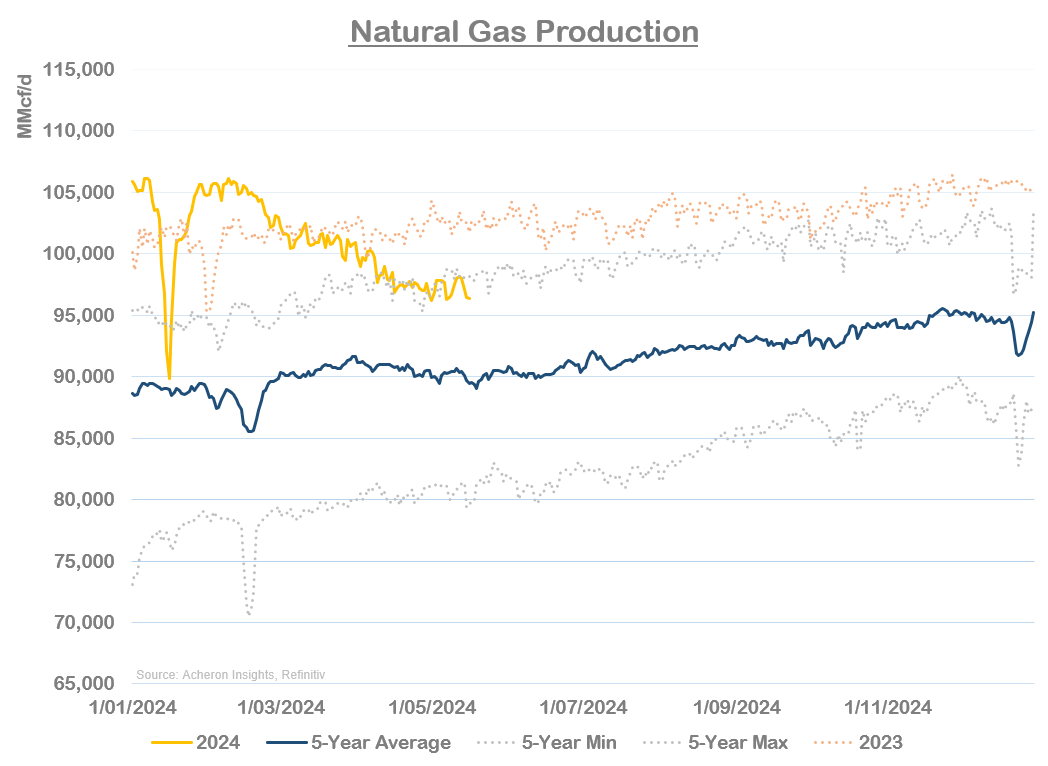
Producers have shown exceptional discipline thus far in 2024 (albeit with the help of pipeline maintenance marginally impacting supply). And, with domestic demand returning to normal levels following the seasonally warm US winter, this drop in production has allowed total natural gas supply (production less net exports) to return to far more robust levels.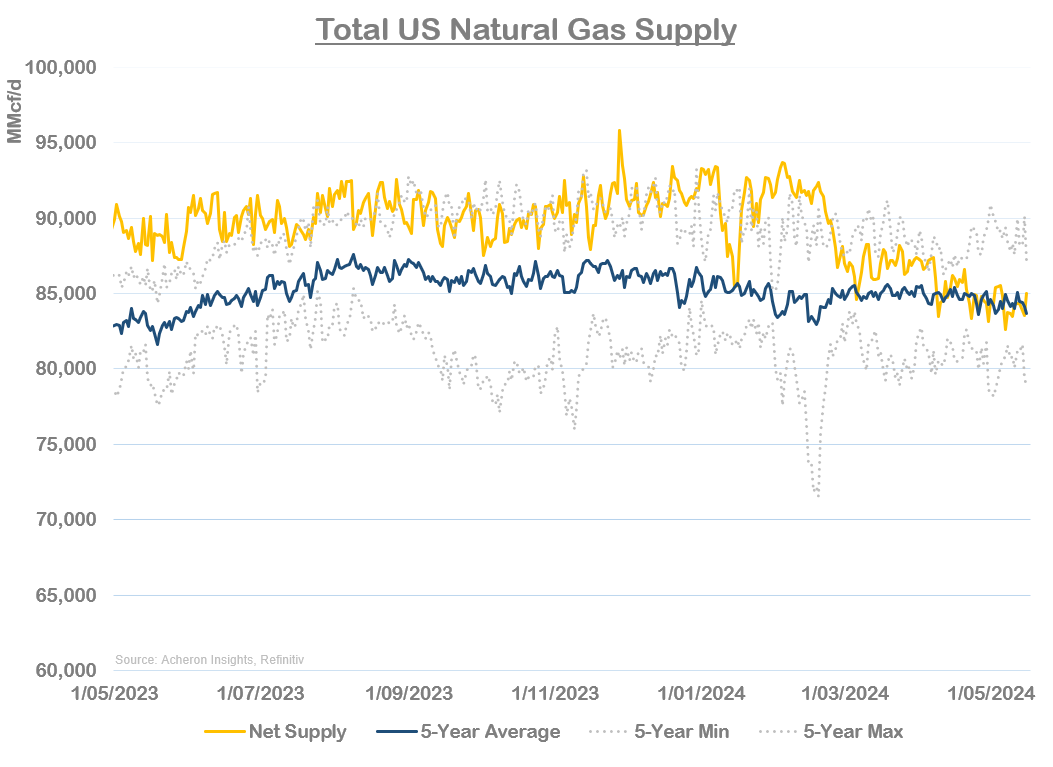
This has materially tightened the market and pushed prices higher.
We are also seeing storage changes move in the right direction. Aside from the brief cold blast in early January, the past couple of quarters has seen very bearish inventory changes. This looks to be slowly rectifying itself as witnessed by bullish inventory changes over the past couple of months, as we can see below. Greater-than-normal inventory draws and/or smaller-than-normal inventory builds are generally a prerequisite for higher prices.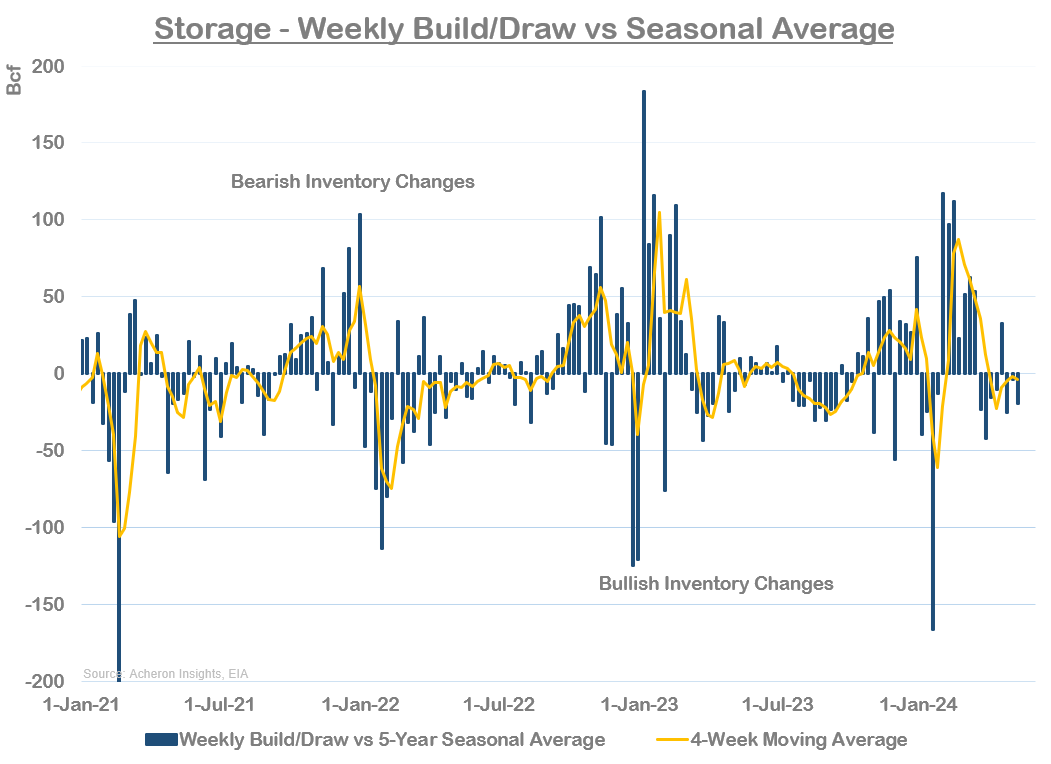
Although the natural gas supply picture has improved dramatically, it is important to remember total supplies are only back to average levels while overall inventory balances remain in a glut. There is still plenty of work to be done for bulls. Fortunately, there are demand catalysts that should support higher prices over the coming 12-24 months, but this will be a slow process and there is still plenty of excess storage to be worked through, capping any shorter-term gains we are likely to see.
Total storage levels still remain ~600 bcf above seasonal norms. What’s more, my naive supply and demand model suggests if production were to average around 98-99 bcf/d from now until the end of injection season, storage levels will still be slightly above seasonal averages come withdrawal season. This of course depends on the weather from now until then (which has every change of being bullish), along with other factors such as the willingness of producers to bring back production.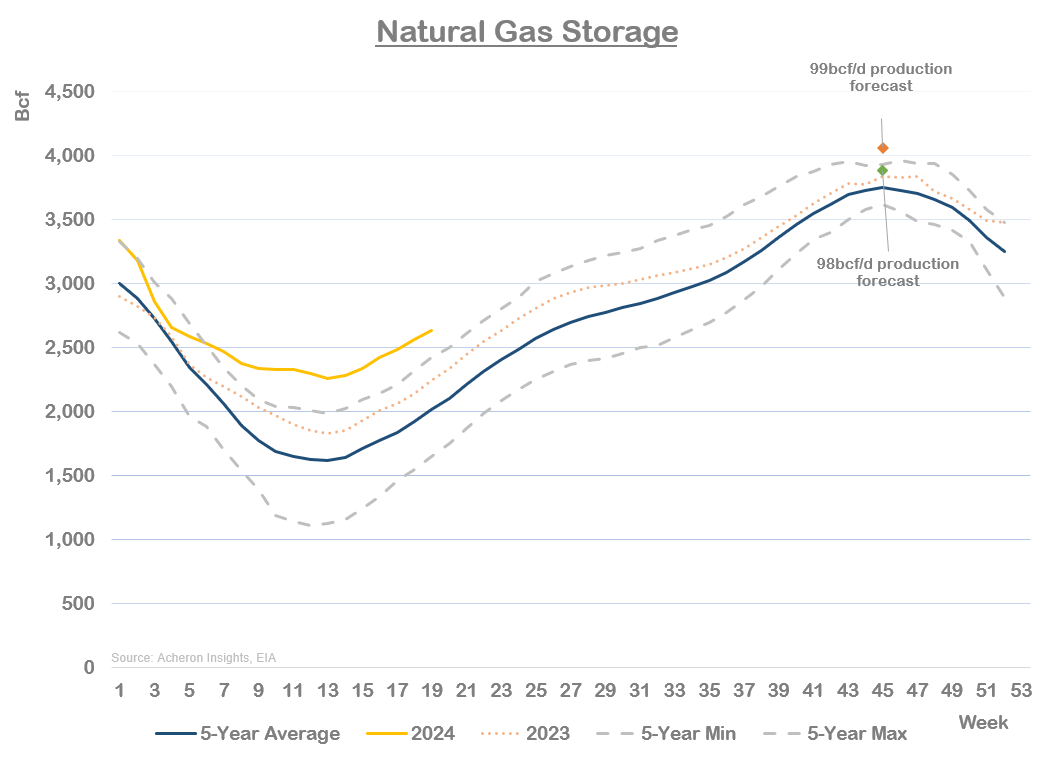
The bullish take on these recent developments is how the supply situation has improved dramatically even with falling LNG exports thus far in 2024. We will see LNG exports rise again as there is ample demand globally for LNG and much of the recent drop in exports is a result of issues at the Freeport export facility. After all, one of the primary tailwinds for natural gas prices over the coming 18 months is the looming rise in LNG exports, with capacity set to increase by around 6 bcf/d through the end of 2025. This additional LNG export capacity should begin to come online as we approach the latter stages of 2024.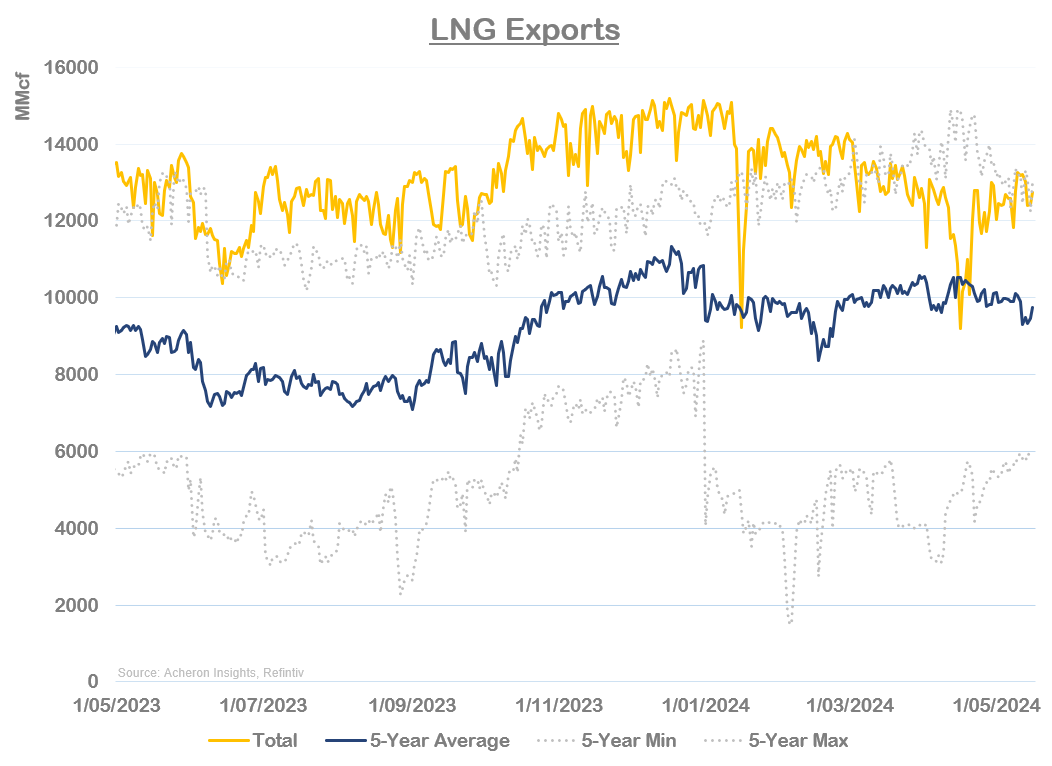
With the additional potential for US production growth to surprise to the downside over the coming 18 months, these dynamics are the backbone of the bull case for natural gas. It has ultimately been the bearish weather that has held prices back. But as we have seen, we are slowly working through the excess supplies that have built up over the past year.
For bulls, the weather dynamic does appear to be turning more favorable over the medium term. Weather is always the wild card when it comes to natural gas. But, as we can see below, the US looks set for a seasonably warm summer. At the very least, this should see weather-related demand throughout the summer months be in-line with seasonal averages.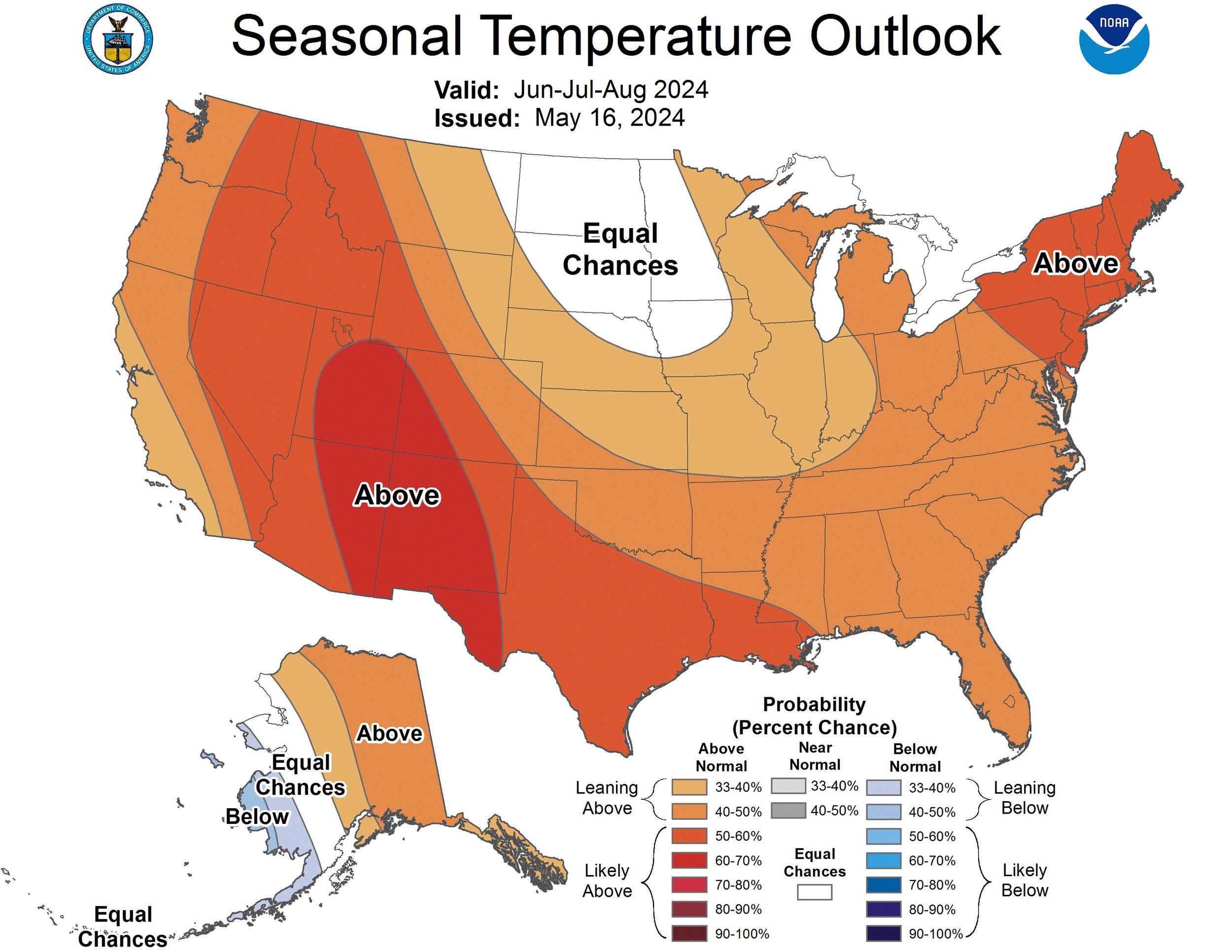
However, there is potential for weather demand to surprise to the upside not only in the summer months but also throughout the 2024/25 winter months. Much of the bearish weather we have seen over the past 18 months can be attributed to El Nino. Both the Southern Oscillation Index and Oceanic Nino Index have been confirming the presence of El Nino since late 2022. Its presence in US winters historically results in warmer than usual weather. That is exactly what we have seen since late 2022.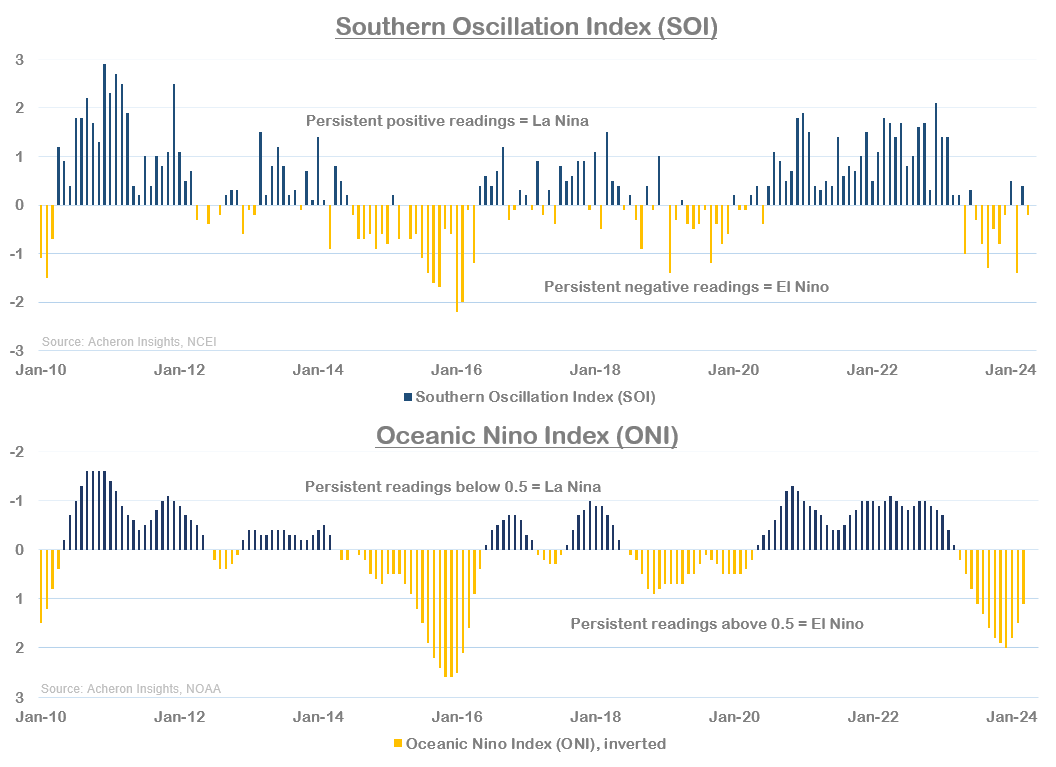
Now, it appears El Nino is well and truly on its last legs. The ENSO cycle looks set to transition into La Nina by the July to August period. Should this be the case, it is likely a bullish outcome for natural gas prices given it would potentially bring a warmer than usual summer, but more importantly, a colder than normal winter in the US.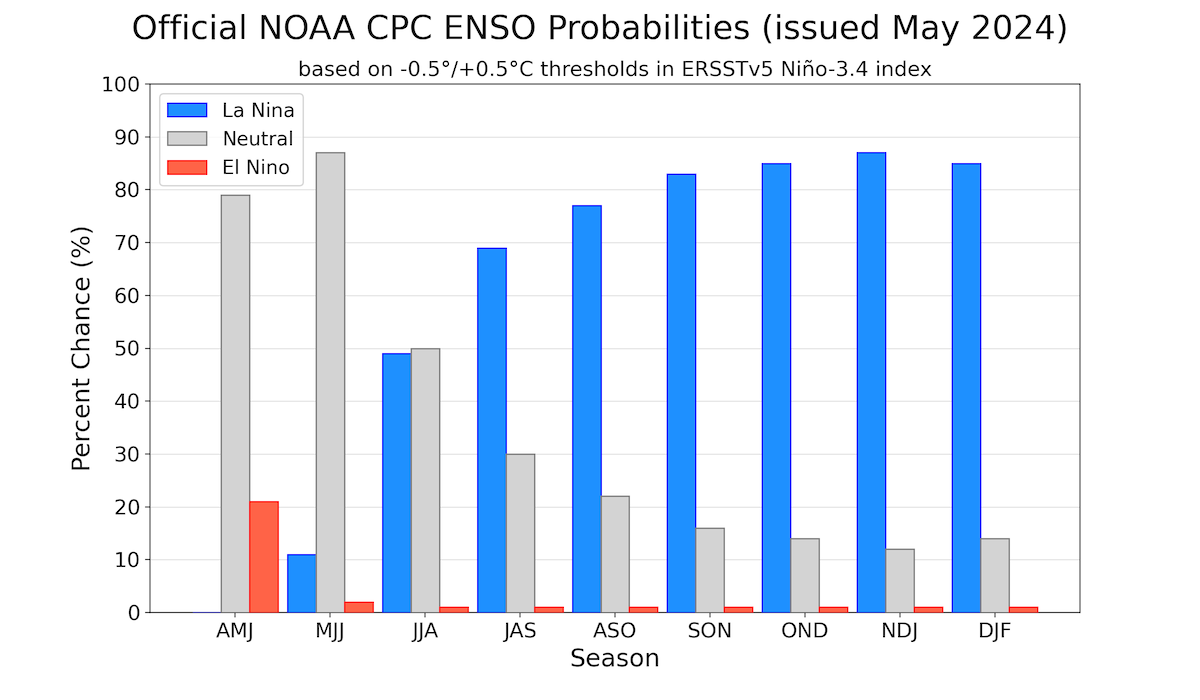
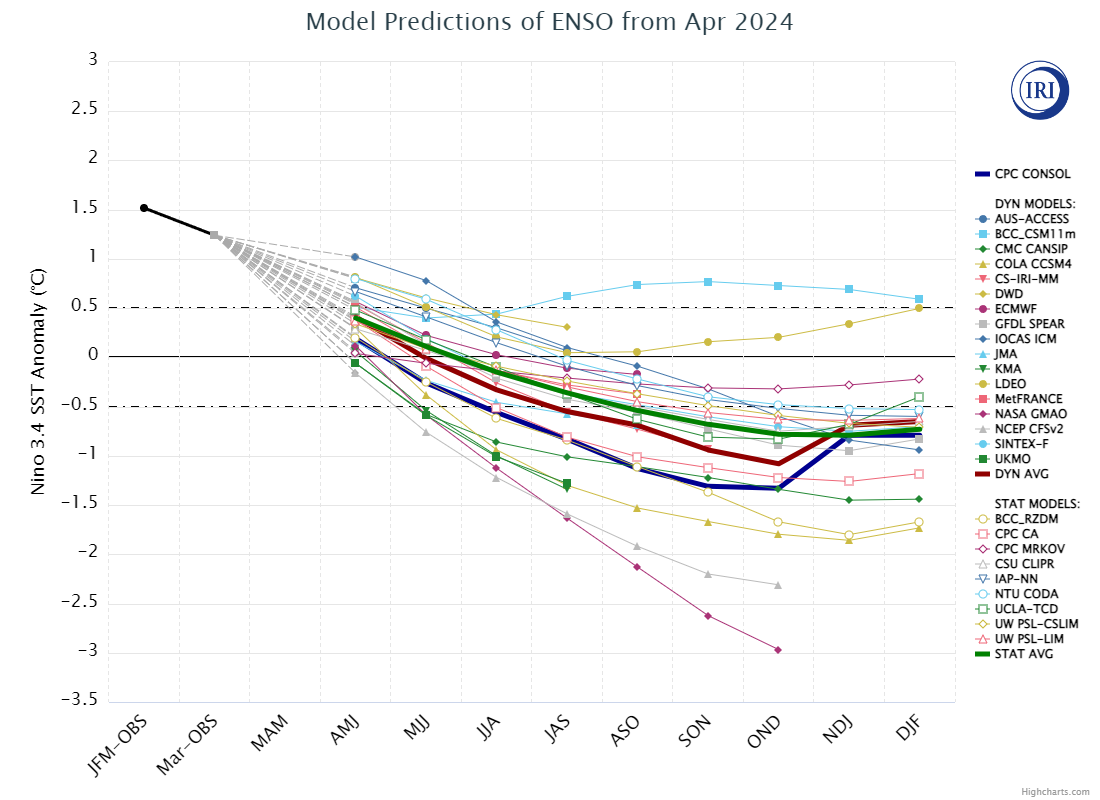
La Nina could also bring with it increased hurricane activity in the Gulf of Mexico, which has the potential to disrupt both production and transport of natural gas. This could be both bullish or bearish depending on whether any disruptions are that of domestic transport/production versus LNG exports internationally.
Whether this bullish weather outlook proves true and is enough to see inventories move below seasonal averages as we enter 2025 remains to be seen, but it does have the potential to be a significantly bullish factor for natural gas prices in addition to rising LNG demand and stagnant production growth tailwinds.
Short-Term Headwinds Remain
While the fundamentals for the natural gas market have dramatically improved in recent months and continue to look bright for 2025, there are hurdles this market must progress through before prices can move materially higher.
First, it is important to note the futures term structure remains heavily in contango, with the key summer and winter months upwards of $0.5-$1.5 MMbtu higher than spot prices.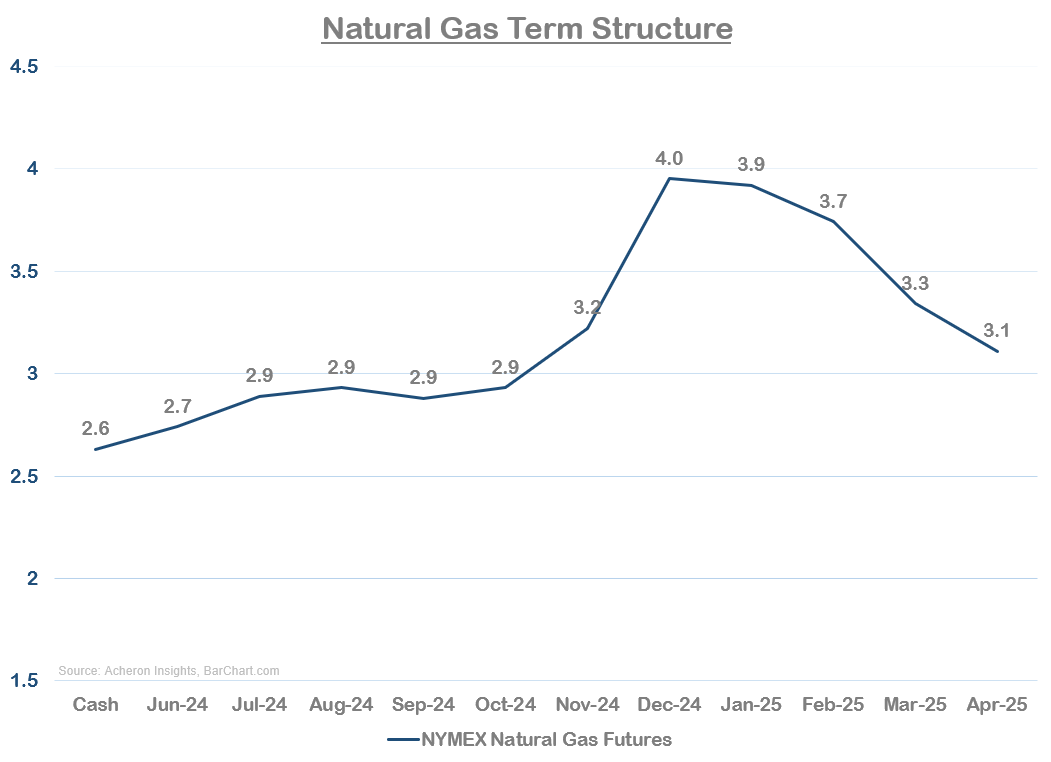
And, given the rally we have seen in spot prices, we are reaching the point whereby a production response is likely forthcoming from producers over the coming couple of months. How large and sustained this is will go a long way in determining how much further natural gas prices can rally in 2024. Either way, this will probably cap prices to a certain extent for the time being.
In addition, we have also seen a significant level of speculative buying over the past couple of months, such that positioning is no longer near the contrarian levels it was at the beginning of the year. Of course, speculative longs can increase significantly from here, but it is worth noting there is now scope for hedge funds and CTAs to unwind long positions.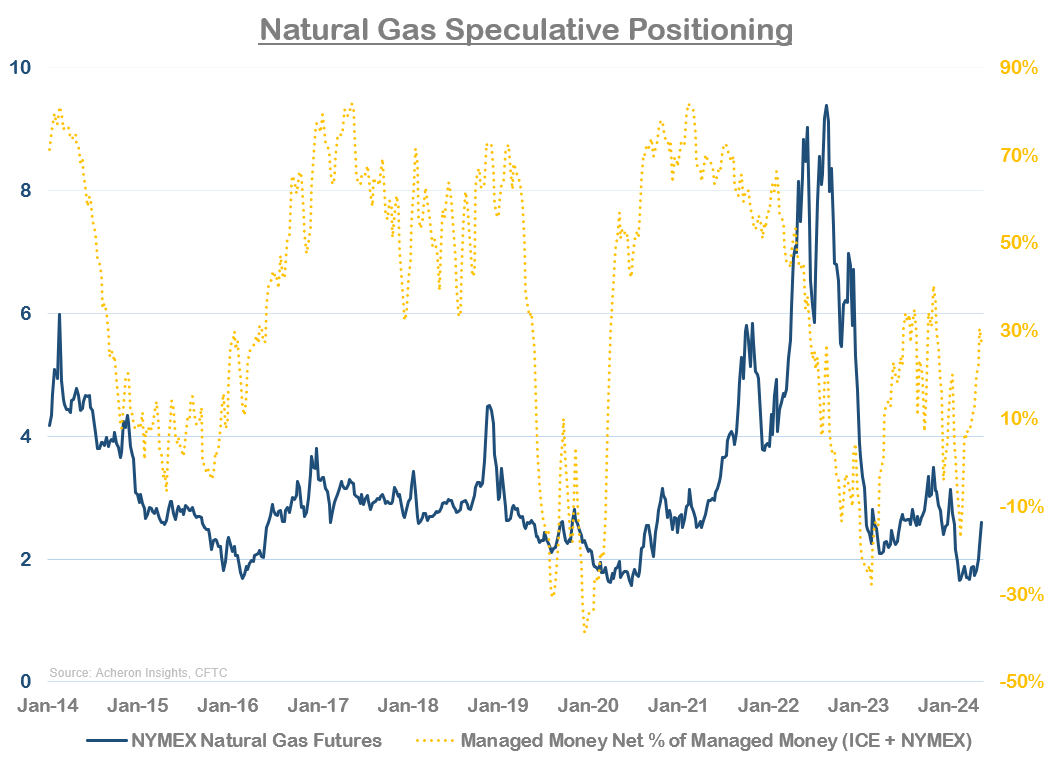
Given how far prices have rallied of late, it seems likely this will come at some point, with a supply response from producers a potential catalyst.
Finally, it is also worth noting we are approaching a seasonally weak period of natural gas prices come June to July.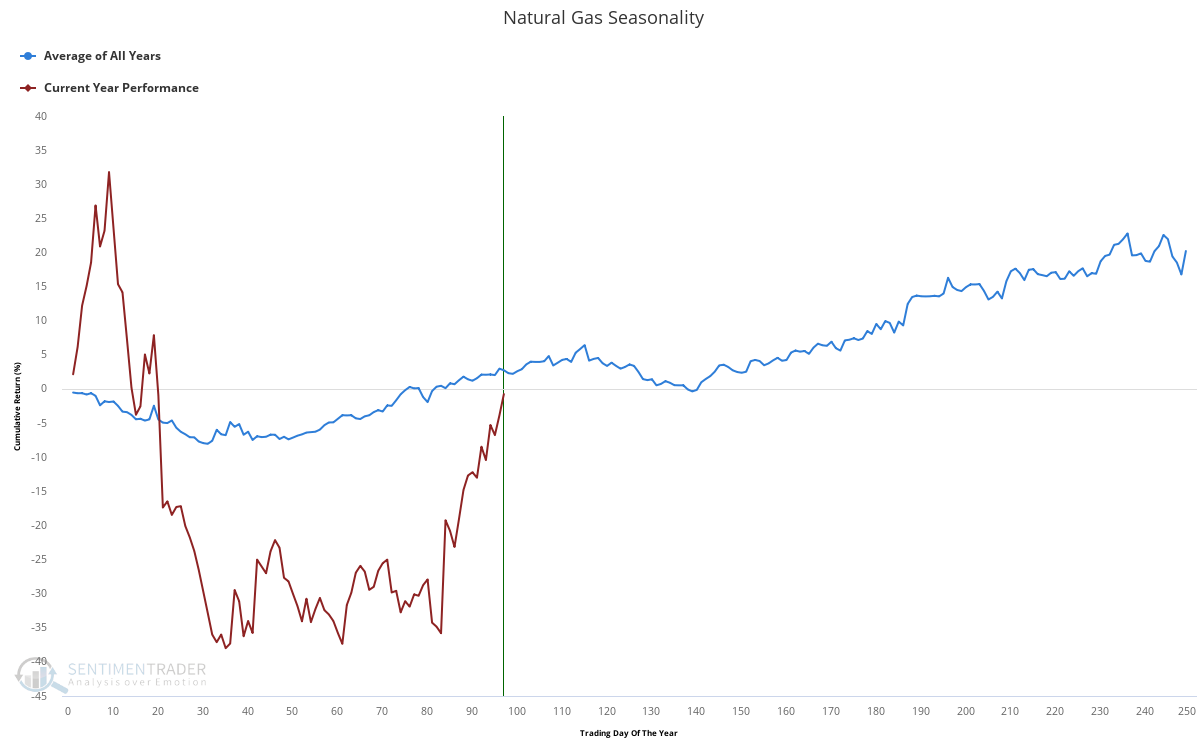
In all, while there remains plenty of work for natural gas to do in the short term, the longer-term fundamental picture for natural gas prices and natural gas equities continues to improve. Should we see US production growth disappoint come 2025 (my expectation), coupled with the continued rise in LNG export capacity, there appears plenty of upside for natural gas prices and equities over the coming 12-24 months. A colder-than-normal winter would only add fuel to the potential fire for a bull market in natural gas.
